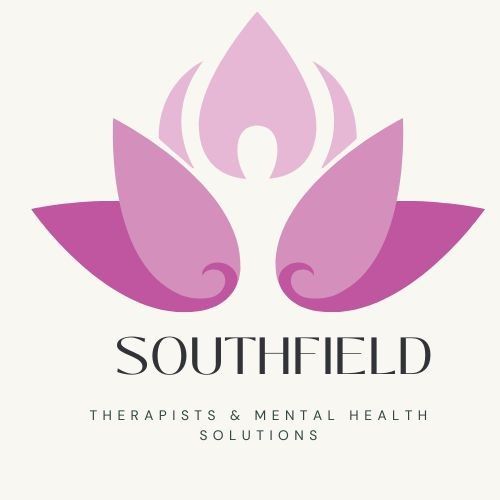Navigating Depression Around the Holiday Season: A Guide to Finding Peace and Support in Southfield
Finding Light in the Darkness: How to Manage Depression During the Holidays with Support from Southfield Therapists and Mental Health Solutions

Navigating Depression Around the Holiday Season: A Guide to Finding Peace and Support in Southfield
The holiday season is often portrayed as a magical time filled with joy, togetherness, and celebration. However, for many, this time of year can bring about feelings of loneliness, stress, and even depression. If you’ve found yourself struggling during the holidays, know that you are not alone—and it’s okay to feel this way.
At Southfield Therapists and Mental Health Solutions, we understand how challenging this time of year can be, especially for individuals living with depression. In this blog post, we’ll dive deep into why depression often worsens during the holidays, how to recognize its symptoms, and practical strategies for managing these feelings. We’ll also share why our clinic is uniquely equipped to support you in finding healing and hope in Southfield.
Why Depression Peaks During the Holiday Season
While the holidays are widely marketed as a time of cheer, the reality is far more complex. Many factors contribute to the rise of depression during the holiday season, including:
1. Unrealistic Expectations
The media often presents the holidays as a picture-perfect time with family gatherings, lavish meals, and endless laughter. However, for many, this doesn’t reflect reality. Trying to live up to these expectations can lead to feelings of inadequacy, disappointment, and sadness.
2. Loneliness
For some, the holidays are a painful reminder of what’s missing—be it loved ones who have passed away, estranged family members, or a lack of meaningful relationships. Even in crowded rooms, feelings of loneliness can persist, amplifying depression.
3. Seasonal Affective Disorder (SAD)
The holiday season coincides with the colder, darker months of the year, which can trigger or worsen Seasonal Affective Disorder. The reduced sunlight impacts serotonin levels in the brain, contributing to feelings of sadness and lethargy.
4. Financial Stress
The pressure to buy gifts, host parties, or travel can strain finances, leading to anxiety and guilt. For individuals already experiencing depression, this added stress can feel overwhelming.
5. Overloaded Schedules
From holiday shopping to attending events, the season can be incredibly hectic. For individuals who are already struggling mentally, these demands can exacerbate feelings of stress, exhaustion, and burnout.
6. Grief and Loss
The holidays often highlight the absence of loved ones who have passed away. Traditions can become painful reminders of what’s missing, making it difficult to fully enjoy the festivities.
Recognizing the Symptoms of Depression
Depression doesn’t always look the same for everyone, but during the holidays, certain symptoms may become more pronounced. Some common signs to watch out for include:
- Persistent sadness or feelings of emptiness
- Loss of interest in activities you once enjoyed
- Fatigue or low energy, even after rest
- Difficulty concentrating or making decisions
- Changes in appetite or weight (eating too much or too little)
- Sleeping too much or too little
- Feelings of guilt, worthlessness, or hopelessness
- Irritability or increased sensitivity
- Thoughts of self-harm or suicide
If you recognize these symptoms in yourself or someone you love, it’s important to seek help. Depression is not a sign of weakness—it’s a medical condition that deserves care and attention.
Coping Strategies for Depression During the Holidays
While it’s not always possible to eliminate depression during the holidays, there are ways to manage your emotions and protect your mental health. Here are some practical strategies to consider:
1. Set Realistic Expectations
Remind yourself that the "perfect holiday" doesn’t exist. Focus on creating moments that are meaningful to you, even if they look different from societal norms.
2. Create Your Own Traditions
If old traditions bring up painful memories, consider starting new ones. This could be something as simple as a solo movie night, volunteering, or baking cookies for neighbors.
3. Prioritize Self-Care
Make time for activities that nurture your mental health. Whether it’s journaling, meditating, taking a walk, or practicing yoga, self-care can help you feel grounded.
4. Set Boundaries
Don’t feel obligated to attend every holiday event or say yes to every request. It’s okay to prioritize your well-being and say no to situations that feel overwhelming.
5. Reach Out for Support
Talk to someone you trust about how you’re feeling. Whether it’s a friend, family member, or therapist, opening up can help alleviate some of the emotional burden.
6. Stay Active
Physical activity can boost your mood by increasing endorphins and serotonin levels. Even a 20-minute walk outside can make a difference.
7. Limit Alcohol Consumption
While it may be tempting to use alcohol as a coping mechanism, it can worsen depression and interfere with your ability to process emotions.
8. Focus on Gratitude
Although it’s not always easy, try to focus on what you’re grateful for. Keeping a gratitude journal can help shift your perspective and bring moments of positivity into your day.
When to Seek Professional Help
Sometimes, self-help strategies aren’t enough, and that’s okay. If your depression feels unmanageable, or if you’re experiencing thoughts of self-harm, it’s crucial to seek professional help. Therapy and, in some cases, medication can make a significant difference in managing depression.
Why Southfield Therapists and Mental Health Solutions Is the Right Choice
If you’re struggling with depression during the holiday season—or at any time of the year—Southfield Therapists and Mental Health Solutions is here to support you. Located in the heart of Southfield, our clinic is dedicated to providing compassionate, evidence-based care tailored to your unique needs.
What Sets Us Apart
1. Experienced Team of Clinicians
Our team of licensed therapists and mental health professionals specializes in treating depression, anxiety, grief, and a wide range of mental health challenges. With years of experience and a deep understanding of how depression manifests, especially during the holidays, we’re here to guide you on your journey to wellness.
2. Individualized Treatment Plans
We recognize that every person’s experience with depression is different. That’s why we create personalized treatment plans that address your specific needs, goals, and circumstances.
3. Flexible Scheduling
We understand that life can be hectic, especially during the holidays. Our clinic offers flexible appointment times, including evenings and weekends, to ensure you can prioritize your mental health.
4. A Safe, Welcoming Environment
At Southfield Therapists and Mental Health Solutions, we pride ourselves on creating a warm and nonjudgmental space where you can feel comfortable sharing your thoughts and emotions.
5. Comprehensive Services
In addition to individual therapy, we offer family counseling, group therapy, and workshops to help you build a strong support system and develop practical coping skills.
6. Affordable and Accessible Care
We accept most insurance plans and offer sliding scale fees for those without coverage. Our goal is to make quality mental health care accessible to everyone in the Southfield community.
Don’t Face Depression Alone
The holiday season doesn’t have to be a time of isolation or despair. With the right support, you can navigate these challenges and find moments of peace and joy. At Southfield Therapists and Mental Health Solutions, we’re committed to helping you feel seen, heard, and supported every step of the way.
Ready to Take the First Step?
If you or a loved one is struggling with depression this holiday season, don’t wait to seek help. Contact Southfield Therapists and Mental Health Solutions today to schedule an appointment. Together, we’ll create a plan to help you feel more hopeful and empowered—not just during the holidays, but all year long.
FAQs
1. How do I know if I need therapy for depression?
If you’ve been experiencing persistent sadness, lack of energy, or other symptoms of depression that interfere with your daily life, therapy can provide valuable support.
2. Can therapy really help with holiday-related depression?
Yes! Therapy can help you develop coping strategies, address underlying issues, and provide a safe space to process your emotions during the holidays.
3. What types of therapy do you offer for depression?
At Southfield Therapists and Mental Health Solutions, we offer evidence-based treatments, including Cognitive Behavioral Therapy (CBT), mindfulness-based therapy, and interpersonal therapy, among others.
4. Do I need insurance to schedule an appointment?
While we accept most insurance plans, we also offer sliding scale fees for individuals without insurance. Please contact us to discuss your options.
5. How soon can I start therapy?
We aim to offer appointments as quickly as possible, often within a week of your initial contact.
Take the first step toward healing today. Contact Southfield Therapists and Mental Health Solutions, where compassionate care meets expert guidance. You don’t have to navigate depression alone—we’re here to help you reclaim your joy and well-being.
